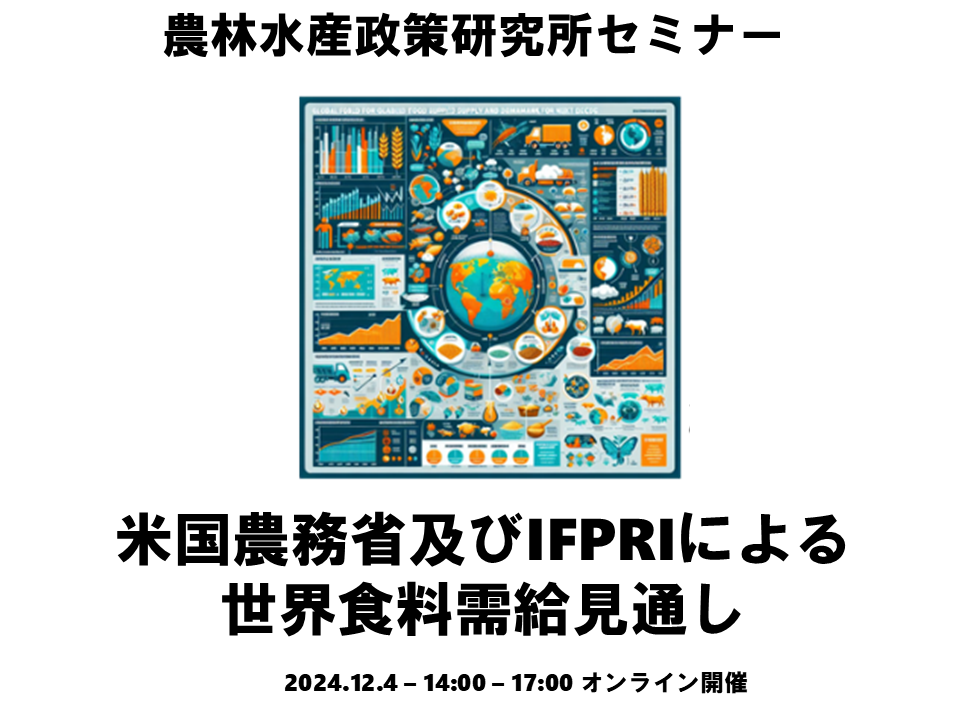Pick Up
1138. Global Food Supply and Demand Outlook

1138. Global Food Supply and Demand Outlook
Medium- to long-term challenges for agriculture include a shortage of successors and workers, difficulties in maintaining farmland, an increase in environmental impact, and an increase in disasters due to climate change. Looking overseas, conflicts are occurring frequently in the Middle East, Eastern Europe, and other regions, making it difficult to produce stable agricultural products.
In order to solve these various issues, measures are being taken to address the labor shortage and farmland maintenance problems, such as the implementation of precision agriculture on farmland accumulation and the introduction of pesticide-reduced farming methods to address the increase in environmental impact. On the other hand, farmers are powerless against the increase in droughts and floods caused by climate change. In addition, unlike in the past, agricultural trade is actively carried out, so if the production of agricultural products in a country decreases due to weather disasters or conflicts, prices will soar, and conversely, if there is a good harvest, prices will fall.
Under these circumstances, in order to effectively promote solutions to various issues, it is very important to have an outlook on trends in agricultural production, supply, and prices in each country over the medium to long term.
The U.S. Department of Agriculture publishes a medium- to long-term outlook for global food supply and demand, with a focus on the U.S. agricultural markets. This time, we have decided to hold a seminar inviting two front-line government officials and researchers who have been preparing the outlook.
Global Food Supply and Demand Outlook
Date: December 4 (Wednesday) 2024: 14:00- 17:00
Mode: Online event (Zoom, free of charge)
Lecturers:
Dr. Seth Meyer, Chief Economist, Office of Chief Economist, USDA
Dr. Keith Wiebe, Senior Research Fellow, IFPRI
Registration Link:
https://us02web.zoom.us/webinar/register/WN_ymw8c3TTSnuHpULb8VAUmQ
The speaker, Dr. Seth Mayer, is the chief economist of the U.S. Department of Agriculture and a leading figure in the U.S. Department of Agriculture's economic and policy research and analysis. He heads the Office of the Chief Economist, which aims to inform public and private decision-makers by providing accurate information and data-driven analysis on current and emerging issues affecting agriculture.
Another speaker, Keith Weeb, is a senior fellow and head of the Prospective and Policy Modeling Unit at the International Food Policy Institute, a consultative group on international agricultural research (CGIAR) in Washington, D.C. The prototype of the IMPACT global food model used in their analysis is the same as the IFPSIM global food model of JIRCAS. We use this model to assess the impact of climate change.
I would like to ask the two of them to talk about the medium-term outlook for food supply and demand in the medium term of about 10 years or another 20 years, and to deepen our understanding of the future global food supply and demand through a question-and-answer session with the participants.
Contributor, FURUYA Jun, Social Science Division
